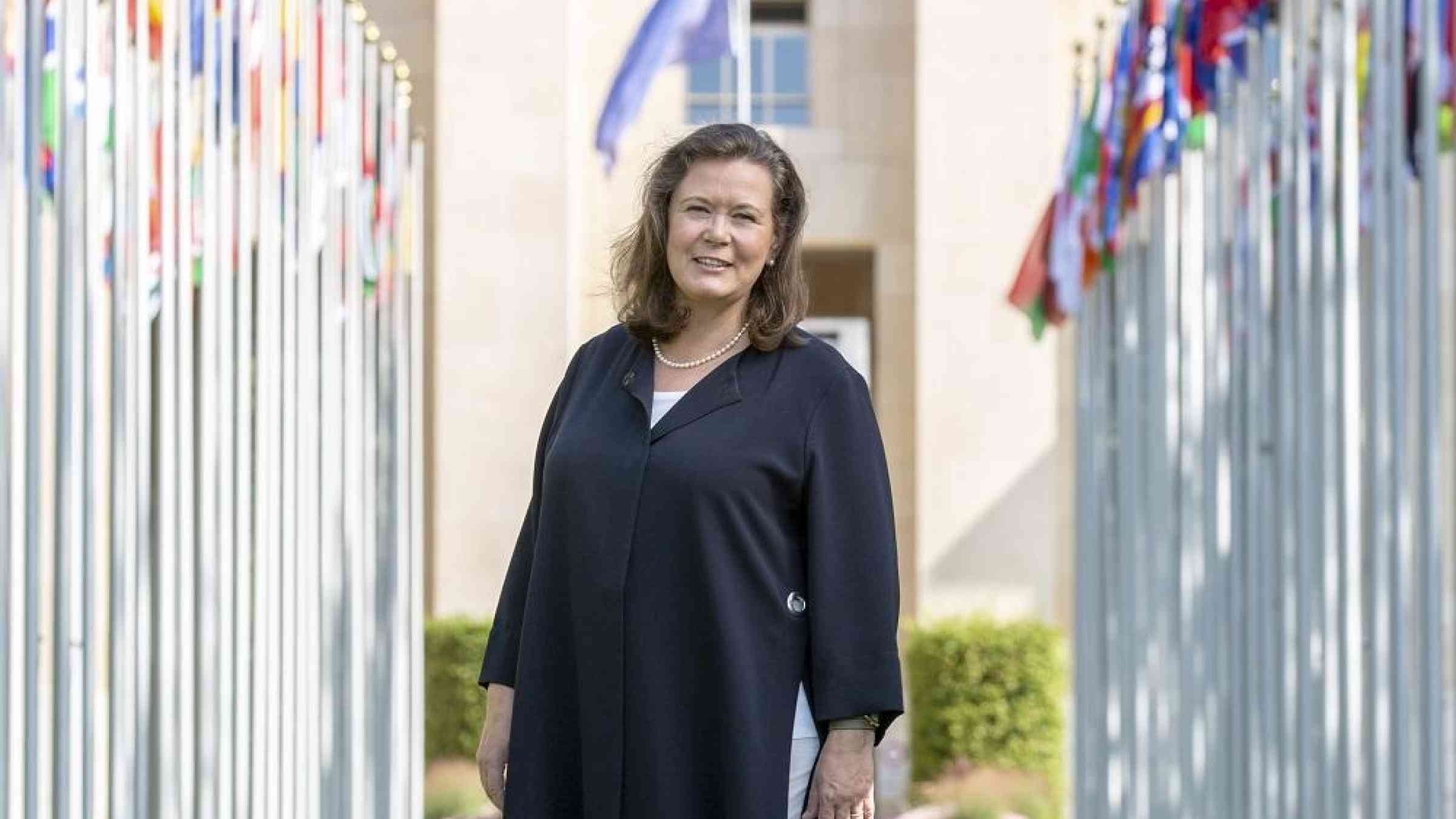UNDRR Director takes up new challenge

GENEVA, 5 December, 2019 - When a little girl in China takes the trouble to write and thank you for helping to save her life in an earthquake you must be doing something right.
The letter was written 25 years ago to the Unicef focal point for disaster risk reduction, Kirsi Madi, to let her know that when the girl was alone at home, she took cover from falling masonry under a table as soon as she felt an earthquake. This was thanks to what she remembered from playing a risk-themed board game Kirsi had developed.
“DRR is a matter of life and death,” Kirsi said as she reflected this week on a busy three years as Director of the UN Office for Disaster Risk Reduction (UNDRR) and on the eve of her departure to take on the role of Chief of Staff at one of the UN’s largest and most well-known agencies, Unicef.
Following her early field experiences as a Unicef JPO in Liberia and Iraq, Kirsi was seconded to the secretariat for the International Decade for Natural Disaster Reduction which eventually gave rise to the creation twenty years ago of UNDRR.
She looks back on the last three years with some pride and a sense of accomplishment at the significant progress in efforts to implement the global plan to reduce disaster losses, the Sendai Framework for Disaster Risk Reduction.
There are now 103 countries reporting on their disaster losses for 2018 ensuring that their progress can be measured on reducing disaster losses across four key targets of the Sendai Framework: reducing mortality, numbers of people affected, economic losses and damage to critical infrastructure.
Her role was informed by her participation in the preparations for the first World Conference on Natural Disaster Reduction in Yokohama in 1994 which set the pattern for the two world conferences which followed in 2005 and 2015 and successive plans for reducing disaster losses through better risk management.
“When we were preparing for Yokohama I had the feeling that the main challenge was to convince people that disaster risk reduction is not simply a matter of science and technology. The fundamental message that came out of Yokohama was that all development planning needs to take account of disaster risk,” she said.
At UNDRR Kirsi has advocated tirelessly for an inclusive approach to disaster risk reduction.
“Joining UNDRR was a real pleasure just after the Sendai Framework was fully adopted knowing that we had just a few years left to 2030. I think there is now a very strong commitment and the realization is growing of how important it is to invest in disaster risk reduction especially with the impact of climate change and the growing number of extreme weather events,” she said.
Creating space for stakeholders to act has been key to UNDRR’s partnership strategy over the last three years.
“It is not that UNDRR itself is doing things but it is convening and providing the space and opportunity for actors and stakeholders to commit to make a change and actually make that change. It’s a growing alliance which includes the private sector, local governments, persons living with disabilities, the academic and scientific communities alongside many civil society organizations representing youth, women and others.
“It is critically important that we have the Sendai Framework to rally us around the same goals and the values that we stand for at this important point in history. I believe that the UN system needs to make sure we are doing our best, that we are effective and efficient and show results and impact.”
Kirsi concluded: “I will miss Geneva and miss the colleagues but it’s good to take up a new challenge. I am really looking forward to making a difference for children and young people in the world. The very first DRR measure is that children and communities are healthy and protected.”